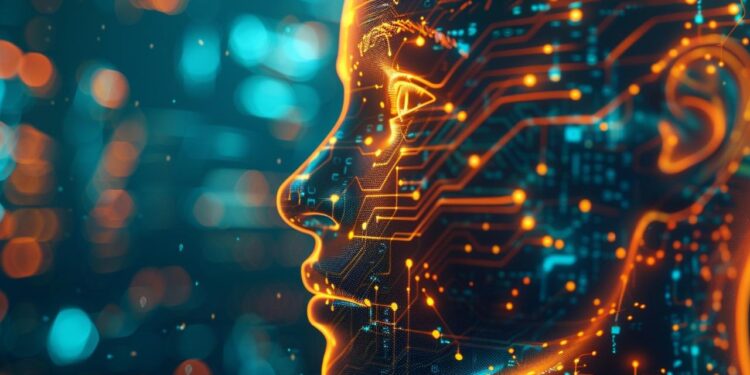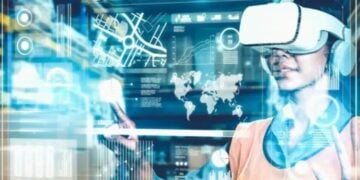Kicking off with Impact Of Ai On Job Market, this topic delves into the profound changes AI is bringing to the job market, exploring its implications on job roles, skills, and opportunities.
Artificial Intelligence (AI) refers to the simulation of human intelligence in machines that are programmed to think and act like humans. In the job market, AI plays a crucial role in automating tasks, analyzing data, and making decisions that were once performed by humans. The significance of AI in shaping the future of work is immense, as it has the potential to revolutionize industries, increase productivity, and create new job opportunities. However, the adoption of AI in the job market also presents challenges such as job displacement, skills gap, and concerns about privacy and security.
Potential Benefits
- Increased Efficiency: AI can automate repetitive tasks, allowing employees to focus on more strategic and creative work.
- Improved Decision Making: AI algorithms can analyze vast amounts of data to provide valuable insights for businesses.
- Enhanced Customer Experience: AI-powered chatbots and virtual assistants can provide personalized support to customers.
- New Job Opportunities: AI creates demand for roles such as data scientists, AI engineers, and robotics specialists.
Challenges
- Job Displacement: Automation of tasks may lead to the elimination of certain jobs, especially those that are routine and repetitive.
- Skills Gap: The rapid advancement of AI technology requires employees to upskill or reskill to remain relevant in the job market.
- Privacy and Security Concerns: AI systems collecting and analyzing vast amounts of data raise concerns about data privacy and security breaches.
- Ethical Issues: AI algorithms may exhibit biases that could result in discriminatory outcomes, raising ethical concerns in decision-making processes.
Automation Impact
AI automation is revolutionizing industries by streamlining processes, increasing efficiency, and reducing costs. This transformation is reshaping the job market landscape, leading to both job displacement and creation.
Jobs at Risk of Automation
- Repetitive tasks: Jobs that involve repetitive tasks, such as data entry, assembly line work, and routine customer service, are at high risk of automation.
- Predictable physical work: Roles that require predictable physical movements, like driving, cleaning, or stocking shelves, can also be automated through AI-powered technology.
- Low-skill jobs: Positions that require minimal skills or training are more susceptible to automation, as AI can perform these tasks efficiently.
Effects
- Job displacement: Automation leads to the displacement of workers in industries where tasks are automated, potentially causing unemployment and a shift in skill requirements.
- Job creation: While certain jobs may be at risk of automation, the implementation of AI technology also creates new job opportunities in areas like AI development, data analysis, and tech support.
- Skills gap: Automation necessitates a shift in required skills, leading to a skills gap where workers may need to upskill or reskill to remain relevant in the evolving job market.
Skill Requirements
In the rapidly evolving job market influenced by AI technologies, there is a significant shift in the skill set demanded by industries. Employees are now required to possess a combination of technical and soft skills to thrive in AI-driven environments.
Changing Skill Set
- Proficiency in programming languages such as Python, R, and Java is essential for roles involving AI development and implementation.
- Data analysis and interpretation skills are crucial for making informed decisions based on AI-generated insights.
- Critical thinking and problem-solving abilities are in high demand to address complex challenges in AI applications.
- Adaptability and continuous learning are necessary to keep up with advancements in AI technology.
Upskilling and Reskilling
- Employees need to upskill to acquire new competencies and stay relevant in AI-driven industries.
- Reskilling programs are essential for transitioning workers into roles that align with the evolving job market influenced by AI.
- Continuous learning initiatives and professional development opportunities are crucial for enhancing skills in AI-related domains.
AI Influence on Education and Training
- AI technologies are transforming the education sector by providing personalized learning experiences and adaptive tutoring systems.
- Online platforms and AI-powered tools are revolutionizing the way students access educational resources and engage in learning activities.
- Incorporating AI into curriculum design and assessment methods is enhancing the quality of education and preparing students for AI-driven workplaces.

Job Market Adaptation
In response to the increasing integration of AI technologies in the workforce, companies are implementing various strategies to adapt to these changes while minimizing job loss and ensuring a smooth transition. These adaptations are crucial for maintaining a competitive edge in the market and maximizing the benefits of AI technologies.
Examples of Company Adaptation
Companies are increasingly utilizing AI to streamline processes, improve efficiency, and enhance decision-making. For example, retail giants like Amazon have implemented AI-powered systems for inventory management and predictive analytics to optimize supply chain operations. Similarly, banks are using AI algorithms to detect fraudulent activities and enhance customer service through chatbots.
Strategies for Integrating AI Technologies
Organizations are adopting several strategies to integrate AI technologies without significant job loss. One common approach is reskilling and upskilling employees to work alongside AI systems, ensuring that they can leverage these technologies effectively. Additionally, companies are redesigning job roles to focus on tasks that complement AI capabilities, such as data analysis and strategy development. Moreover, some organizations are implementing hybrid workforce models that combine human expertise with AI technologies to drive innovation and productivity.
Role of Government Policies
Government policies play a crucial role in supporting a smooth transition in the job market amidst AI advancements. Policies that promote lifelong learning and skill development are essential to ensure that workers are equipped with the necessary competencies to thrive in an AI-driven economy. Additionally, governments can incentivize companies to invest in employee training programs and create regulations that safeguard workers’ rights in the face of automation. By fostering a supportive environment for upskilling and reskilling, governments can help mitigate the negative impacts of AI on the job market and facilitate a successful transition for workers.
New Job Opportunities
AI implementation has not only impacted existing job roles but has also given rise to new job opportunities in various industries. As AI technologies continue to advance, new job roles are emerging, creating a demand for specialized skills and expertise in different sectors. This shift in the job market presents both challenges and opportunities for individuals seeking employment in the age of AI.
Emerging Job Roles Created by AI
- AI Ethics Specialist: With the increasing use of AI in decision-making processes, the need for professionals who can ensure ethical AI practices is growing. AI ethics specialists are responsible for evaluating and monitoring the ethical implications of AI algorithms and systems.
- Data Privacy Officer: As data becomes more valuable in the age of AI, the role of data privacy officers is crucial. These professionals are tasked with ensuring that data is handled securely and ethically, protecting individuals’ privacy rights.
- AI Trainer: AI trainers work on training AI models and systems, providing them with the data and knowledge they need to perform specific tasks. This role requires a deep understanding of AI algorithms and machine learning techniques.
Industries Experiencing Job Growth Due to AI
- Healthcare: The healthcare industry has seen significant job growth due to AI technologies, with roles such as medical AI analysts, telemedicine specialists, and AI-powered diagnostics experts in high demand.
- Finance: In the finance sector, AI has led to the creation of job roles like algorithmic trading specialists, financial analysts using AI tools, and risk management professionals leveraging AI for decision-making.
- Retail: Retail companies are increasingly adopting AI technologies for personalized marketing, inventory management, and customer service, leading to the demand for roles such as AI merchandising analysts and customer behavior analysts.
Potential for AI to Generate New Employment Opportunities
AI has the potential to generate new employment opportunities by creating jobs that require human skills such as creativity, emotional intelligence, and critical thinking. While AI may automate certain tasks, it also opens up avenues for individuals to focus on higher-level cognitive tasks that require human judgment and intuition. As AI continues to evolve, new job opportunities will emerge, emphasizing the importance of upskilling and reskilling to stay relevant in the changing job market landscape.
In conclusion, the impact of AI on the job market is undeniable, with both challenges and opportunities arising as industries adapt to this technological revolution.
You also can investigate more thoroughly about Augmented Reality In Digital World to enhance your awareness in the field of Augmented Reality In Digital World.












